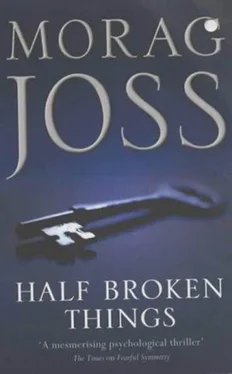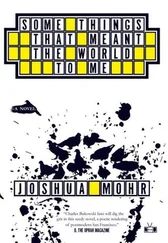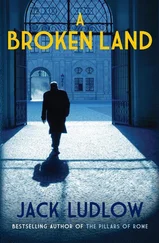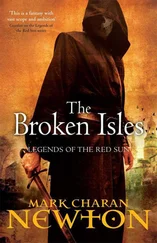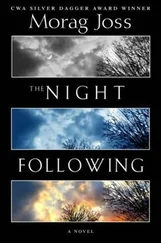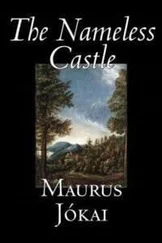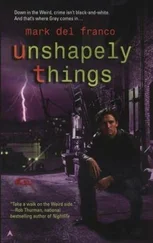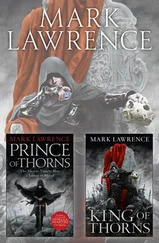Morag Joss - Half Broken Things
Здесь есть возможность читать онлайн «Morag Joss - Half Broken Things» весь текст электронной книги совершенно бесплатно (целиком полную версию без сокращений). В некоторых случаях можно слушать аудио, скачать через торрент в формате fb2 и присутствует краткое содержание. Жанр: Детектив, на английском языке. Описание произведения, (предисловие) а так же отзывы посетителей доступны на портале библиотеки ЛибКат.
- Название:Half Broken Things
- Автор:
- Жанр:
- Год:неизвестен
- ISBN:нет данных
- Рейтинг книги:3 / 5. Голосов: 1
-
Избранное:Добавить в избранное
- Отзывы:
-
Ваша оценка:
- 60
- 1
- 2
- 3
- 4
- 5
Half Broken Things: краткое содержание, описание и аннотация
Предлагаем к чтению аннотацию, описание, краткое содержание или предисловие (зависит от того, что написал сам автор книги «Half Broken Things»). Если вы не нашли необходимую информацию о книге — напишите в комментариях, мы постараемся отыскать её.
Loners Jean, Micheal and Steph are drawn together to Walden Manor by a mixture of deceit, good luck and misfortune. There, they shape new lives, full of hope and happiness. When their idyll is threatened they discover their new lives are worth preserving. But at what cost?
Half Broken Things — читать онлайн бесплатно полную книгу (весь текст) целиком
Ниже представлен текст книги, разбитый по страницам. Система сохранения места последней прочитанной страницы, позволяет с удобством читать онлайн бесплатно книгу «Half Broken Things», без необходимости каждый раз заново искать на чём Вы остановились. Поставьте закладку, и сможете в любой момент перейти на страницу, на которой закончили чтение.
Интервал:
Закладка:
By night he would park in as concealed a place as he could find, and then take the spade, a few of the bags, the torch, and go off. After the first night or two he decided the spade was not such a good idea. He bought a trowel and handfork, and another backpack that he lined with plastic sheeting. Each night, with two or three bags from the boot in the backpack, and the tools in his pockets, he would set off looking for burial places. It looked less suspicious, he said, as if he were just setting out on a night hike.
It is amazing when you start to look, he said, how many places there are that never get walked over or noticed, even though nearby people are coming and going all day. He dug holes on those patchy and desolate stretches of ground where people do not go, not even to walk dogs, the soft ditches at field corners where no footpaths cross and where no ploughs go. He even buried two bags deep in the middle of a huge roundabout, planted with thick shrubs and trees.
As he went further north he began to seek out remoter places, though it was hard to judge how suitable the ground would be. He walked long distances in the dark, managing whenever he could by moonlight. On some nights he would hit rock not far below the ground’s surface, and then he would have to give up, the night wasted, and take the bags back to the boot. And the boot was beginning to smell. But he never gave in to the temptation just to drop bags in a litter bin and get away, or to scratch shallow holes for the bags and cover them over quickly. He always dug deep, emptied the contents of the bag in with the remains of the salt, filled the hole and trod over and around it carefully, replacing any turf. The thought of an excited dog with a wagging tail dropping some freshly dug-up part of Gordon Brookes at its owner’s feet filled him with horror. Not one of those bags must ever be found.
But just in case any should be, he avoided leaving them in any discernible trail. He branched off the M1 and wound through the High Peak District of Derbyshire, then continued due west into Cheshire and turned north again on the other side of the country, on the M6. From there he made detours into the Forest of Bowland and Swaledale. He crossed the country again south of the border, and drove east to Newcastle and then set off northwest through the Cheviots, entering Scotland at Hawick. But he could only get rid of three or four bags a night, at the very most. The boot seemed almost as full as when he had begun. So he pressed on, beyond Glasgow, across the Forth Road Bridge into Fife, burying bags where he could. The last two went into the North Sea at a place called Garron Point, north of Stonehaven. The next day he bought a large container of disinfectant, emptied it over the boot of the car, and headed south.
As he told me all this I asked questions: but how did you manage it, were you not frightened, how could you drive so far, on next to no sleep and little food? To my ears it was heroic. It hadn’t occurred to Michael to see it that way, but I was overwhelmed with admiration. Bit by bit as he talked and the day grew bright, some of the flint that was in him began to melt out. It came gradually, his understanding that it was all over. I sent him up to bed just as Steph was coming down. He went willingly. Now he could rest. The massive effort was over and we were back together again, and safe.
Jean was kept busy with the plums. There were six or seven trees, some bearing red fruit and some purple, and a golden one that she told the others were greengages. She decided against jam. But she read up about stewing, purйeing and freezing plums; she made them plum tart and plum charlotte, working in the kitchen with the radio on. She paid special attention to the news, dreading to hear anything about the discovery of human remains. No news came. She was now even more grateful for every day that passed. Each morning she would wake with the thought that another twenty-four hours had gone by which, even as she slept, had been doing their degrading, natural work. With every moment that passed Gordon Brookes was being returned to earth, dissolving hourly into the elements in which he lay.
She watched Michael, willing him to mend. After several days during which he did not get out of bed, he re-emerged with a white face and unsteady eyes. He blinked too often and glanced away to the side every two or three seconds, as if he had suddenly heard a soft but unwelcome noise over his shoulder. He had also developed a habit of giving tight little sniffs which would momentarily convulse the muscles in his throat. But the days of August stretched on, the time between the present and the past grew longer, and the events which had threatened his near-collapse seemed to fade in his mind. He did not get any worse. Jean trusted to the passing of more time and to the house itself to heal him, as she knew they would.
The summer continued hot. Some of the trees all but dried up and began to drop their leaves ahead of time, before their colours changed. They lay like torn paper strips painted dark green on one side and pale grey on the other and set out on the ground to curl under the sun. Jean pointed out to Michael the jobs in the garden that she considered mellow, soothing, and in keeping with the season, sending him out to be among the fallen leaves, not because she wanted them tidied up (she very much liked the dry swirl of them under the trees) but because she thought it would please him to feel their papery weightlessness in his arms.
It was not a particularly theatrical August. These days a mist lay on the garden until late morning. Amber blisters broke out over the remaining plums. They oozed and then rotted on the trees and on the ground; wasps feasted. In the flower beds it was the turn of the geraniums and carnations to eclipse the waning early flowers, the roses and monkshood, but everywhere the colours looked a little exhausted.
Charlie was less content to be carried round the garden on Steph’s hip having the names of colours told him; he wriggled now to be put down on the grass, where he would sit for a moment, pointing, and then lunge forward trying to reach the flowers, desperate to get among them. He could bounce along quite fast, and needed constant watching. Steph fretted pleasurably about his increased independence and mobility. She was worn out, she said. What with Charlie being here all the time, she was being run ragged. And he would put anything in his mouth. One day Jean came out to the garden to find her entire wooden spoon collection in a circle around him on his mat and Charlie sitting with his arms stretched up towards her, two bright red circles on his cheeks. He was teething.
There followed some disturbed nights and days of frantic gnawing, bad temper and a burning temperature. It was Steph and Michael together who saw him through it. They took it in turns to rise as soon as they heard him cry and dose him with Baby Calpol. For four nights in a row they walked the hot little bundle up and down with a cold flannel against his face. Then there were two twin white stumps in the centre of his lower jaw. It seemed to bring Michael round. His smile, which had been tight, filled out again. He laughed. Sally, who rang Steph once a week or so, sounded sorry in a remote kind of way to have missed her baby’s first tooth. Steph promised to take a photograph. In the meantime Simon, Sally said, was no worse, but neither was he much better. She could not come home yet. Steph told her not to worry.
Not only the colours in the garden faded, but the skies changed too, and in the afternoons the light shining on the walls of the house was gold. Inside the house Jean noticed the scent of roses and from the windows, looking up from what she was doing, she liked to watch Michael and Steph in the garden with Charlie, whose good humour was quite restored. Now once again there would be singing, and shrieking and laughing, and Michael and Steph swinging Charlie up high between them, then quiet spells. That was when Jean liked to walk slowly outside to join them. Charlie would be either asleep, or amusing himself on a rug in the shade, Steph would be lying or strolling about nearby. Michael most often would be reading. A pretty picture they made, or perhaps they created something more like a line in a poem than a picture, because the faint reluctance Jean sometimes felt to walk in and become part of it was not a fear of sullying the thing visually. It was an appreciation of the scene’s completeness, and her utter contentment in standing there beholding it, that sometimes made her wonder if adding herself to it would be clumsy. For she was beginning to feel the slight separation that comes with being the first to realise something important, ahead of other people. The date was beginning to weigh on her mind, and, with her face as calm as ever, she now, as she went about her work, would be wondering about it, thinking what to do. She would not discuss it with the others, not yet; she liked to be thinking it over for herself as she watched them out in the garden, oblivious. She did not want to burden them with it yet. Then they would look round and see her, and call out, and she would go towards them, smiling. So they would lie about talking and playing until it was time to go in. They were impossibly happy.
Читать дальшеИнтервал:
Закладка:
Похожие книги на «Half Broken Things»
Представляем Вашему вниманию похожие книги на «Half Broken Things» списком для выбора. Мы отобрали схожую по названию и смыслу литературу в надежде предоставить читателям больше вариантов отыскать новые, интересные, ещё непрочитанные произведения.
Обсуждение, отзывы о книге «Half Broken Things» и просто собственные мнения читателей. Оставьте ваши комментарии, напишите, что Вы думаете о произведении, его смысле или главных героях. Укажите что конкретно понравилось, а что нет, и почему Вы так считаете.
